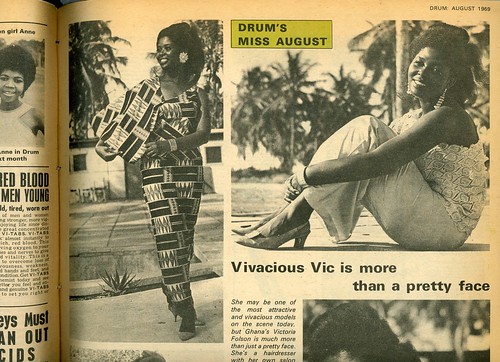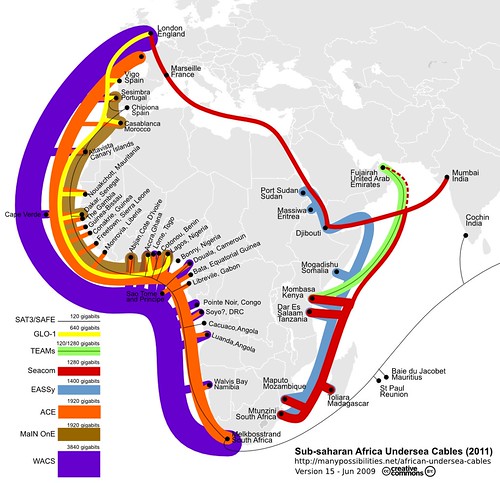Tuesday, June 30, 2009
My first attempt: Little Mountain, Nat Bailey and the new Olympic curling centre
Inspired by the way some newspapers are using the web to tell a story I decided to try my hand at internet video. This doesn't really have a narrative and is basically me dumping my photos into iMovie and imperfectly scoring it with a Fennesz song but I kinda like the way it turned out.
The greater issue though is the arrival of the Olympics, the lack of housing in Vancouver and, in particular the plans for the demolition of the Little Mountain homes. These plans, to turn Vancouver's oldest housing project into mixed social and market housing, comes at a time when homelessness is going up and there's a great deal of insecurity around joblessness and closing shelters.
The rumours are that despite no plans to start the development until after the 2010 Olympics, residents have been evacuated early so the site can be used as a parking lot for a nearby venue. Photos of the curling centre are at the end. I actually managed to take photos of the game from an upper level of the, yet unfinished, curling centre's fire escape.
Saturday, June 27, 2009
Doing online journalism right: grape picking in the Coachella Valley

This article from the LA Times on the grape industry of Southern California shows how little it has come from the days of Cesar Chaves and the sixties' grape boycotts. Especially well done is the audio slide show that accompanies the piece.
The work is hard, dirty and dangerous. It begins at dawn when the air is sweet and moist and stretches until midafternoon, when temperatures can top 120 degrees and the sun feels like a steel-toed boot to the head.
The pay is $8 to $9 an hour, less than it was 40 years ago when adjusted for inflation.
"Nothing changes," says Arturo Rodriguez, an attorney in the Coachella office of California Rural Legal Assistance. "It's the same harvest of shame."
Tuesday, June 23, 2009
South Sudanese Political Cartoons



These are cartoons from The Juba Post, South Sudan's English Language newspaper. Unsurprisingly they mostly concern Bashir. See all the cartoons,with text, at the Pulitzer Center. Unfortunately there's no mention of the artist and the Juba Post's website is currently down.
Monday, June 22, 2009
Ex-Zambian Leader’s High Life Awaits a Verdict

Great article from the New York Times
Quote:
The judge concluded that though Mr. Chiluba had a salary of only about $10,000 a year during his decade in office, he spent more than $500,000 in a single shop, Boutique Basile, in Geneva.
Rumour has it he's gonna go free. I wonder.
Friday, June 19, 2009
Magazines West and the Western Magazine Awards
Unfortunately, people are still pretty confused about the role of social networking. "Go be a video blogger" has been the sarcastic punchline of the day" as editors, writers and publishers talk fearfully about the fast pace of online evolution.
I'm actually going to do this though. Watch out for my new video blog launching sometime next month. I'm going to leave the conference's highlights for the articles I'm writing which will appear on Mastheadonline.com. Now I have to get ready for the Western Magazine Awards gala taking place in an hour or so. Being in central Africa all this year means I haven't read a single article or magazine nominated.
Burning questions: Can Tyee Bridge pull of a hat-trick again? Will Goats Across Canada win Best New Magazine?
Here's last year's coverage.
Monday, June 15, 2009
Three relevant links on African photography
By Michael Kamber
I learned more about Somalia through this list of photography tips from this New York Times photographer than from most feature articles on the region. Note on anarchy:
In other places, clans or religious groups have created islands of stability and progress. We passed through towns where the residents had built schools, hospitals and even a library, with no help from any central authority.How I take pictures
by Scarlett Lion aka Glenna Gordon
Instructions for not so casual picture taking. Note on why:
It’s also important for me to explain why I want to take the photo. There’s certainly a misconception that photographers make tons of money selling photos of Africans abroad. I tell people I don’t make money off of the majority of my images – which is 100 percent true – and that I’m here to take a picture to tell a story. In Liberia, I tell people that I want to share photos with the outside world to show that Liberia is no longer at war, that people are living their lives, that things are getting better. This appeals to a lot of people who innately understand how misunderstood they are.Africa the 'land of bones', says Oprah
by Verashni Pillay
South African journalist, and my good friend, asks if the Oprah-penned introduction to this photo book is a joke?
But no, oh no. The Queen of chat and purveyor of pseudoscience medicinal quackery is as ever all the more terrifying because she's sincere. She really does take herself so seriously that she would dedicate 80% of the foreword to an amazing photographer's work with the most self-indulgent and vainglorious crap - and throw him a bone of congratulations at the end for "crystallizing" her connection. Er, actually the book is a treasure box of gorgeous images from across the continent - not a tribute to your confused sense of identity.
Sunday, June 14, 2009
Saturday, June 13, 2009
Are biofuels the answer to Zambia's petrol problems?
Was going to be snarky
Norway grants Zambia 8 mln USD
in wildlife conservation supportan indication that the project had impacted well in uplifting livelihoods of communities living around South Luangwa National Park in eastern Zambia.
LUSAKA, (Xinhua) -- The Norwegian government has given Zambia’s Wildlife Conservation Society (WCS) 8 million U. S. dollars to support its project of empowering local communities living near game parks to prevent them from killing animals, the Times of Zambia reported on Friday.
Norwegian Ambassador to Zambia Tore Gjos said during a signing ceremony in Lusaka that his country will not stop supporting Zambia’s wildlife sector.
The Norwegian envoy said the support to WCS’s Community Markets for Conservation (COMACO) project was an indication that the project had impacted well in uplifting livelihoods of communities living around South Luangwa National Park in eastern Zambia.
He said the project had been able to improve rural livelihoods around the game management area and had helped to protect the biodiversity and ecosystems in the area.
COMACO Country Director Dale Lewis said the initiative had helped to conserve more than 5, 000 wild animals annually, as the community had turned to farming and abandoned poaching, which was prevalent before the introduction of the project.
Under the project, communities are encouraged to give up snares (for trapping animals) and firearms. They are instead empowered with skills to tap other sources of earnings such as farming. The project has so far helped 30, 000 households in the area.
Wonderfully vague Zambian political website
Nice website with an eloquent Obama-ish manifesto. I wonder why it's so secretive though. It doesn't, on first glance, seem like something that would invite repression but you never know.
Wednesday, June 10, 2009
Hot new Zambia links
That said, I don't like the majority of Zambian reggae music. Like a lot of Zambian rappers who have fake American accents and appalling flows, a lot of Zambian reggae sounds like a mockery of 80s Peter Tosh.
A few weeks after news of the Lujo virus was splashed around the world Zambia has made the international news again.
Unfortunately it's part of a trend article talking about corruption in Africa in general with lines like“Going after big fish hasn’t worked,” he said. “The fish will not fry themselves.”
Zambia recently won rare convictions against former military commanders and Regina Chiluba, the wife of its former president, on corruption charges. Frederick Chiluba, president from 1991 to 2001, will himself face a verdict in July on corruption charges. His sumptuous wardrobe — Lanvin suits, silk pajamas and handmade Italian shoes of snakeskin, satin and ostrich — became an emblem of greed in one of the world’s poorest countries.
But anticorruption leaders say they sense less commitment to tackle corruption since the election of President Rupiah Banda. “I’m inside,” said Maxwell Nkole, who leads a task force set up to investigate the Chiluba-era abuses. “The tempo, the intensity to tackle corruption is dropping.”
The Banda administration vigorously denies that charge, and says it will prosecute officials who stole $2 million from the Ministry of Health. At stake are hundreds of millions of dollars in grants from the United States’ Millennium Challenge Corporation that Zambia is eligible for. On a recent afternoon, ambassadors from rich nations, the United States and Britain among them, mingled at a party on the lawn of Mark Chona, the first chief of the Zambian anticorruption task force. In welcoming them, he issued a sharp warning.
“Your money is being stolen,” he said. “Don’t sit silent. You don’t know how much influence you have.”
The broader anxieties about Africa’s resolve to combat corruption have emerged from troubled efforts in several countries.I don't understand how Africa can have "resolve" to do anything. As if "Africa" has a will-power problem that a little life coaching couldn't cure. Maybe a support group and a 12-step program is what's needed.
Sunday, June 7, 2009
The Onion answers my question
Police Slog Through 40,000 Insipid Party Pics To Find Cause Of Dorm Fire
Friday, June 5, 2009
great photography links
I've always thought there has to be some great uses for this glut of digital images. Photosynth is a program that allows the user to collect hundreds of images from Flicker and fuse them into one large incredibly detailed photo of a place. Looking at well done photosynth is being able to see hundreds of different people's visual experience of a place. It's hard to explain. Take a look at this demonstration.
The other thing that caught my eye yesterday was this site for the 2009 World Press Photo awards. Watch the photographer's tiny head describe the context and motivations behind his or her work while scrolling through the award winning photos.
The thing that has most impressed me lately, however, is Flickriver, a Flicker viewer that allows you to scroll uninterrupted through a user's photos presented in a large format on a black background. Take a look at the Flicker stream of Howard French who at different points in his career was the New York Times bureau chief for Africa, Japan and China. It's mostly portraits of Chinese people in black and white from residents of Shanghai to Sichuanese farmers, interspersed images from Africa, New York City and various other places. The photos of old-Shanghai, in particular, bring back many memories of wandering around there as a child.
I mention Howard French because I recently finished his book, A Continent for the Taking about his time as a journalist working in west and central Africa. His insight into the practice of journalism, his deep grasp of the issues and his focussed rage at the personalities he encounters made this one of the better books I've read on the region. His account of the fall of Mobutu is particularly good.
Thursday, June 4, 2009
Music: Cadence Weapon, Seperation Anxiety
Pay what you can download here.
The video for Real Estate from Afterparty Babies:
Tuesday, June 2, 2009
A year's worth of Drum Magazine, Ghana 1969
But Drum was actually a South African magazine (read about it here) with franchises around the continent. A quick search led to an exhibition of images from the South African edition 1976-1980 which, it turns out, is far more lurid with photo essays documenting stabbings, war, and social unrest. This is the difference, I suppose, between Ghana 1969 and South Africa during the most vicious days of apartheid.






The Munk Debates: Be it resolved that foreign aid does more harm than good
No, I did not have the pleasure of attending this and, as yet, have not watched the video. I have however read an excellent recap (with analysis!) by my good friend Louis over at Governance Village.
Noticed: everyone's trying to claim they're pals with Kagame now.
Monday, June 1, 2009
Noticed: King Leopold on one hundred trillion dollar bill

No, I'm really not a fan of K'naan, believe me, but I like this recent video. Notice the Zimbabwe currency with King Leopold superimposed over the Dzimba dza mabwe which subsequently bleeds after being shot.
A decent documentary about the global arms trade
Seen at DOXA, the Vancouver documentary film festival.
If you've seen Lord of War, the largely ignored film starring Nicholas Cage as an international arms dealer, this documentary covers a lot of the same ground. In fact, Cage's character is based on the arms dealer Victor Boot who--as shown in Devils' Bargain--is simultaneously hunted by law enforcement for supplying arms to the world's insurgencies while working for the US department of defense.
Like Lord of War, the film explores the intricate routes small arms take from the rusting eastern bloc arsenals into the hands of combatants from Iraq to the streets of Nairobi. What's great about this film is its visual depiction of globalization, starting in Somalia (actually I missed the first few minutes so this is where I came in) where we meet a group of young men armed with Kalashnikovs. One is giving an impassioned speech about the need to be armed amidst the chaos of post-collapse Somalia. His friend, looking bemused, says "what did you say? no, we use these to rape women."
From there we hear from Moldovan pilots, a Russian who runs an African air-cargo company, and plenty of arms salesmen as they discuss the finer points of lightweight automatic weapons. The talking heads include people from various organizations that document the global movement of arms to John Bolton who defends the US's stance against an international treaty to regulate the industry ludicrously claiming it would violate Americans' second amendment rights.
Watch this in tandem with Lord of War and Darwin's Nightmare and you'll have a pretty good idea of how it works.
